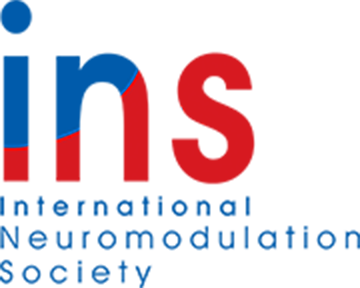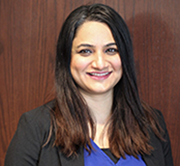International Neuromodulation Society Innovative Research Grant ProgramIntroduction | Eligibility | Funding | How to Apply | Previous RecipientsIntroductionOctober 2025 The concept behind the International Neuromodulation Society (INS) Innovative Research Grant Program was introduced by Dr. Simon Thomson, then INS President, in 2013. In recent years, the INS has worked to develop the infrastructure and funding to initiate this important project. We are honored to announce the third round of this critical project. The chair upon which this program sits has several legs. It aims to provide:
To apply for this grant, INS members will submit their most innovative research ideas to a panel of judges for review. Proposals demonstrating the best blend of ingenuity and practicality will be selected, and the winner will be announced at the next INS World Congress. INS Innovative Research Grant Program recipient will receive up to $30,000 in seed money for their innovative pilot study, which will ultimately help them apply for and obtain extramural funding. None of the funds awarded are to pay for faculty salary, administrative or overhead expenses. This program supports the educational mission of the INS. Any manuscripts from this grant funding will be submitted to the official journal of the INS, Neuromodulation: Technology at the Neural Interface, for consideration. EligibilityAll INS members are eligible to apply, although applications from fellows and early-career neuromodulators are encouraged. Ideally, the grant will be reserved to support a beginning scientist within five years of completion of residency or fellowship, by encouraging and adequately funding projects that can contribute to bridging the gap between training and progression to independent investigator status. Other awards will be used as seed grants to help investigators obtain preliminary data to support a new application to external funding agencies. FundingA maximum of $30,000 will be awarded to one recipient. The grant amount will be determined by the INS Innovative Research Grant Program Committee based on funds available and the quality of the applications. Innovative Research Grant Programs are funded through a combination of:
Funding provided by INS Innovative Research Grant Program will support a research project for one to two years, during which pilot studies can be conducted. The investigator must submit reports every six months to track their progress. Not only do these reports give the researcher an edge over their competition when submitting applications for external funding, but they are also shared with INS Innovative Research Grant Program supporters to provide them with tangible evidence that their donations are making a difference. At the conclusion of the one or two-year period, a new research grant award is announced, and the cycle of innovation and discovery begins again. The funded researcher will also be awarded funding to attend and present their findings at the biennial INS World Congress. Please help us extend this opportunity to a greater number of worthy applicants! With a gift of $30,000, you can independently sponsor one Innovative Research Grant Program applicant. Please consider making a donation of any amount to support this worthy cause. Best wishes, Konstantin V. Slavin, MD Marc A. Russo, MBBS DA (UK) FANZCA, FFPMFANZCA Robert M. Levy, MD, PhD Jan Vesper, MD, PhD Treasurer, International Neuromodulation Society Application ProcessImportant: All applicants must be current INS members. Join Now Step One: A Statement of Intent A Statement of Intent must be submitted in Microsoft Word as a single document and include the following: 1. Overview of Research Plan (one page total max)2. Preliminary Budget (budgets should not include salary support for a faculty, resident, or fellow, administrative fees, nor overhead costs) 3. Research Mentor 4. List of Collaborators 5. Confirmation that the applicant will remain at the same lab/institution listed in this application for at least two years from the award date and through the completion of an awarded research project. (Inability to complete the project in this single institution will require a refund of the grant.) 6. Launch: 6 October 7. Pre-proposal Deadline: 6 November, 11.59 PM PST 8. Candidate Notifications: 10 December
Step Two: Final Application 1. Final applications will be invited by the Grant Review Committee. Step Three: Grant Application and Award Process 1. All complete submissions will undergo review by the INS Innovative Research Grant Program committee members Previous INS Innovative Research Grant Recipients2024
2022
|
||||
| Last Updated on Tuesday, November 04, 2025 12:21 PM |




